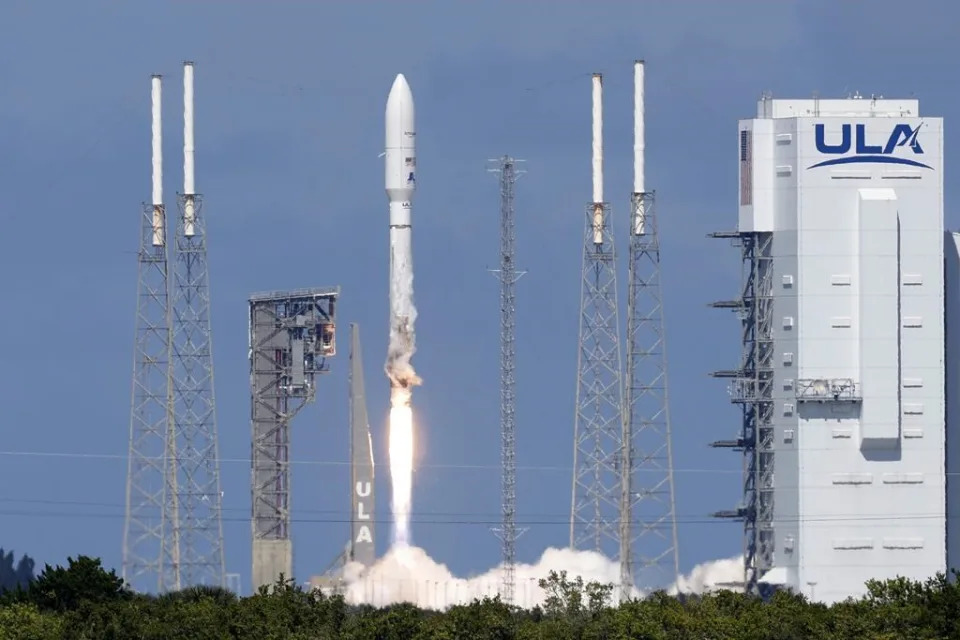TO INVEST IN TARSANDS & PIPELINES
The Canadian Press
Fri, October 6, 2023

CALGARY — The CEO of Enbridge Inc. is calling on the federal government to create a national Indigenous loan guarantee program to help First Nations communities in Canada acquire equity stakes in major resource and infrastructure projects.
In an interview following a speech to the Toronto Region Board of Trade on Friday, Greg Ebel said Canadian energy companies are increasingly willing to offer equity ownership stakes to Indigenous communities whose traditional lands are crossed by pipelines and other infrastructure projects.
But he said Indigenous communities often don't have the necessary access to capital. While Alberta, Saskatchewan and Ontario all have provincial programs offering financing to Indigenous communities for commercial partnerships, Ebel said a pan-Canadian solution is required.
"The problem is, much of our infrastructure in this country crosses jurisdictions, it crosses boundaries. So therefore you need a national program," he said.
"It's hard for a province to provide loan guarantees for the benefit of people who live in a different province."
While private companies have been partnering with Indigenous communities on infrastructure projects for decades, early agreements typically involved guarantees of construction jobs or other financial benefits for the community and fell short of offering Indigenous people a full equity stake.
That’s changing, however. Last fall, Enbridge signed what was at the time North America's largest energy-related partnership between a private company and Indigenous people. The deal saw the Calgary-based company sell an 11.57 per cent interest in seven northern Alberta pipelines to 23 First Nation and Métis communities — a $1.1 billion-deal that was backed by a $250-million equity loan guarantee from the Alberta Indigenous Opportunities Corp.
Several Indigenous-led groups have also indicated interest in purchasing an equity stake in the Trans Mountain oil pipeline, which is currently owned by the federal government.
In addition, Indigenous communities have been investing heavily in wind, solar and other clean energy projects. The not-for-profit organization Indigenous Clean Energy Social Enterprise recently estimated that Indigenous communities own, co-own or have a defined financial benefit agreement in place for almost 20 per cent of Canada's electricity generating infrastructure.
The growing tendency for Indigenous communities to get involved as full equity partners comes at a time when Canada has committed to reconciliation with Indigenous people, a commitment that includes the recognition of Indigenous people's right to economic self-determination.
But Niilo Edwards, CEO of the First Nations Major Projects Coalition — a group of more than 130 Indigenous nations working to ensure First Nations communities get a fair share of the benefits from projects that cross their territories — said Indigenous communities are at a significant disadvantage when it comes to seeking financing through mainstream capital markets.
"The main reason is, the Indian Act does not enable First Nations to use their land and other assets as collateral," Edwards said.
"This has historically precluded First Nations from participating in the mainstream of the economy, and therefore when our members are presented with these opportunities, they don't have the level of at-risk capital required to secure a good interest rate."
Edwards said without access to competitive interest rates, Indigenous communities often have to forgo participating in equity partnerships — even when they are hosting infrastructure projects on their lands.
"For those Nations who choose to pursue equity ownership, the financing supports have to be there," Edwards said.
"There has to be a fair return for the value (First Nations) are bringing to the table."
In its 2023 budget, the federal government committed to lending affordable capital through the Canada Infrastructure Bank to Indigenous communities to purchase equity stakes in infrastructure projects in which the bank itself is also investing.
However, the Canada Infrastructure Bank is only mandated to invest in clean power, green infrastructure, broadband, trade and transportation, and public transportation.
Enbridge, which is advocating for the role of natural gas and LNG (liquefied natural gas) as a transition fuel in the global energy shift towards a lower-carbon economy, believes any federal loan guarantee program should be sector-agnostic.
"You can’t just single out one or the other, because I think, again, that limits the opportunities for Indigenous communities to participate," Ebel said.
Making it easier for First Nations to purchase equity stakes in infrastructure projects will also go a long way in creating the social license required to get these projects built, he said.
That, in turn, could ease the regulatory and permitting process which has made building major projects in Canada costly and cumbersome, he added.
"I think with things like the Inflation Reduction Act in the United States, Canada has to constantly find new ways to be competitive," Ebel said.
"And I don't think there's any doubt that if we can find a way to involve more Canadians, and particularly Indigenous people, that puts us in a very nice competitive position. It sends a very strong message to our customers, whether they’re domestic or global, that we’re serious about getting infrastructure done and doing it in a manner that’s sustainable."
This report by The Canadian Press was first published Oct. 6, 2023.
Companies in this story: (TSX:ENB)
Amanda Stephenson, The Canadian Press
The Canadian Press
Fri, October 6, 2023

CALGARY — The CEO of Enbridge Inc. is calling on the federal government to create a national Indigenous loan guarantee program to help First Nations communities in Canada acquire equity stakes in major resource and infrastructure projects.
In an interview following a speech to the Toronto Region Board of Trade on Friday, Greg Ebel said Canadian energy companies are increasingly willing to offer equity ownership stakes to Indigenous communities whose traditional lands are crossed by pipelines and other infrastructure projects.
But he said Indigenous communities often don't have the necessary access to capital. While Alberta, Saskatchewan and Ontario all have provincial programs offering financing to Indigenous communities for commercial partnerships, Ebel said a pan-Canadian solution is required.
"The problem is, much of our infrastructure in this country crosses jurisdictions, it crosses boundaries. So therefore you need a national program," he said.
"It's hard for a province to provide loan guarantees for the benefit of people who live in a different province."
While private companies have been partnering with Indigenous communities on infrastructure projects for decades, early agreements typically involved guarantees of construction jobs or other financial benefits for the community and fell short of offering Indigenous people a full equity stake.
That’s changing, however. Last fall, Enbridge signed what was at the time North America's largest energy-related partnership between a private company and Indigenous people. The deal saw the Calgary-based company sell an 11.57 per cent interest in seven northern Alberta pipelines to 23 First Nation and Métis communities — a $1.1 billion-deal that was backed by a $250-million equity loan guarantee from the Alberta Indigenous Opportunities Corp.
Several Indigenous-led groups have also indicated interest in purchasing an equity stake in the Trans Mountain oil pipeline, which is currently owned by the federal government.
In addition, Indigenous communities have been investing heavily in wind, solar and other clean energy projects. The not-for-profit organization Indigenous Clean Energy Social Enterprise recently estimated that Indigenous communities own, co-own or have a defined financial benefit agreement in place for almost 20 per cent of Canada's electricity generating infrastructure.
The growing tendency for Indigenous communities to get involved as full equity partners comes at a time when Canada has committed to reconciliation with Indigenous people, a commitment that includes the recognition of Indigenous people's right to economic self-determination.
But Niilo Edwards, CEO of the First Nations Major Projects Coalition — a group of more than 130 Indigenous nations working to ensure First Nations communities get a fair share of the benefits from projects that cross their territories — said Indigenous communities are at a significant disadvantage when it comes to seeking financing through mainstream capital markets.
"The main reason is, the Indian Act does not enable First Nations to use their land and other assets as collateral," Edwards said.
"This has historically precluded First Nations from participating in the mainstream of the economy, and therefore when our members are presented with these opportunities, they don't have the level of at-risk capital required to secure a good interest rate."
Edwards said without access to competitive interest rates, Indigenous communities often have to forgo participating in equity partnerships — even when they are hosting infrastructure projects on their lands.
"For those Nations who choose to pursue equity ownership, the financing supports have to be there," Edwards said.
"There has to be a fair return for the value (First Nations) are bringing to the table."
In its 2023 budget, the federal government committed to lending affordable capital through the Canada Infrastructure Bank to Indigenous communities to purchase equity stakes in infrastructure projects in which the bank itself is also investing.
However, the Canada Infrastructure Bank is only mandated to invest in clean power, green infrastructure, broadband, trade and transportation, and public transportation.
Enbridge, which is advocating for the role of natural gas and LNG (liquefied natural gas) as a transition fuel in the global energy shift towards a lower-carbon economy, believes any federal loan guarantee program should be sector-agnostic.
"You can’t just single out one or the other, because I think, again, that limits the opportunities for Indigenous communities to participate," Ebel said.
Making it easier for First Nations to purchase equity stakes in infrastructure projects will also go a long way in creating the social license required to get these projects built, he said.
That, in turn, could ease the regulatory and permitting process which has made building major projects in Canada costly and cumbersome, he added.
"I think with things like the Inflation Reduction Act in the United States, Canada has to constantly find new ways to be competitive," Ebel said.
"And I don't think there's any doubt that if we can find a way to involve more Canadians, and particularly Indigenous people, that puts us in a very nice competitive position. It sends a very strong message to our customers, whether they’re domestic or global, that we’re serious about getting infrastructure done and doing it in a manner that’s sustainable."
This report by The Canadian Press was first published Oct. 6, 2023.
Companies in this story: (TSX:ENB)
Amanda Stephenson, The Canadian Press







